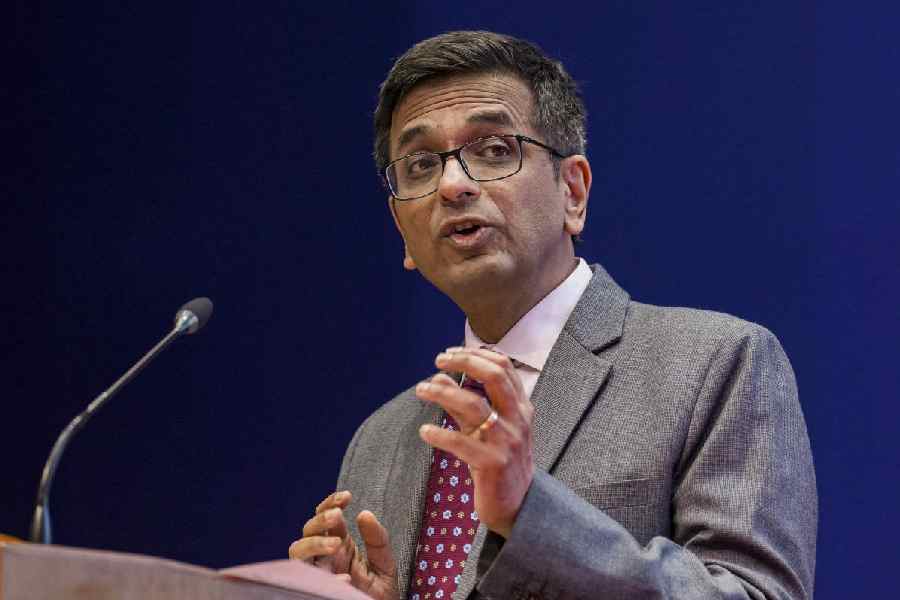Chief Justice of India D.Y. Chandrachud on Thursday underlined the need for judges, as constitutional functionaries, to sustain the “public trust” while stressing that the judiciary is expected to act “unencumbered by popular morality when deciding constitutional or legal questions”.
“As constitutional functionaries, parliamentarians, judges and governments hold constitutional authority only as representatives and trustees of the people. This is the essence of the public trust doctrine,” Justice Chandrachud said, delivering a speech as part of the Jigme Singye Wangchuck Lecture Series in Bhutan.
“Judges are supposed to act in a manner that is unencumbered by popular morality when deciding constitutional or legal questions. Even at the level of trial courts, judges are trained to apply the letter and the spirit of the law with clinical detachment from the popularity of their decisions.
“Thus, in that sense, neither the appointment nor the continuity of judges is determined by (any) popular mandate enjoyed by their decisions. In fact, populist decision-making sits rather uncomfortably on the sinewy shoulders of judicial independence.”
Yet, Justice Chandrachud said, the courts of the country do require public trust and legitimacy. Institutional trust in constitutional and other courts is the basis of a thriving constitutional order, he said.
Public trust is central to the credibility of the judicial branch which is otherwise insulated from public opinion in its operations, as it must be, he added.
“Yet our insulation from public opinion, which is intrinsic to our independence, provides a crucial need and justification for ensuring public trust in our functioning,” Justice Chandrachud said.
“But away from constitutional theory and in simple terms, we deal with the problems of the daily life of our citizens. Having their trust is hence crucial to our work. To discharge that trust we must place our feet in their shoes, understand their lived realities and find solutions within their universe of existence. The Indian Supreme Court prides itself in being the people’s court.”
Justice Chandrachud said the position of the judicial wing of the government is peculiar for two reasons.
“As public functionaries, judges are vested with the responsibility to give effect to this equity. Judicial bodies of the country are not directly in charge of the manner in which resources are distributed. However, it does fall upon judges to adjudicate the fairness of that distribution, should it be questioned,” he said.
Second, judicial institutions are peculiar in another way: judges are not elected representatives.
“Public trust applies to us differently from other wings of the government. The doctrine of public trust is linked with accountability. Now the reason judges are peculiarly placed in the context of public trust is this – ‘accountability’ is typically associated with elected representatives in democratic theory,” he said.
“Elected representatives are directly accountable to their constituents and to the legislative institutions to which they are elected. By and large, they are voted in by popular mandate and continue in office subject to the people’s enduring confidence in them. Courts and judges, on the other hand, derive their powers from the mandate of the Constitution or statutory laws.”











